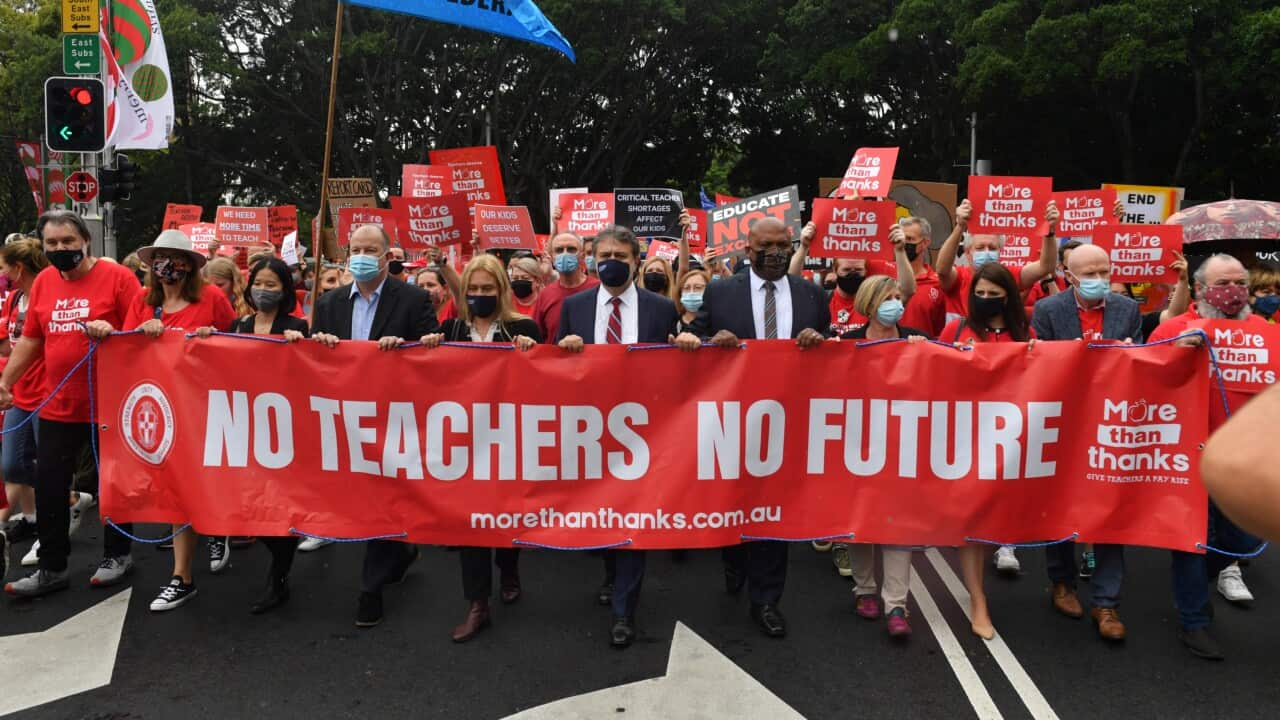Visas for overseas teachers should be prioritised in a bid to help fill the workforce shortage in the education system, Education Minister Jason Clare says.
Mr Clare said his colleague, Home Affairs Minister Clare O'Neil, had agreed to take the visa applications from teachers who were in the queue and bring them to the top of the pile.
"One of the things that we've got to do is prioritise visas for teachers from overseas who want to come and work here," Mr Clare told reporters on Friday.
"States independently of the commonwealth work with teachers who are keen to come and work, make sure that they meet the standards that individual states have to be accredited ... and then make sure that they get the visa as quickly as possible."
Mr Clare met with his state and territory counterparts in Canberra, discussing how to fix , including labour shortages, workloads, retention issues and incentives for people wanting to make a mid-career change to teaching.
NSW Education Minister Sarah Mitchell said the government could also consider fast-tracking citizenship for people in areas of skills shortages.
"One of the concerns and challenges has been that wait for a visa and I think that has also been turning off these prospective people from coming," she said.
"There's a lot that we can do in this space if we work collaboratively and I think today's a really good step in the right direction."

Education Minister Jason Clare says visas for overseas teachers should be prioritised in a bid to help fill the workforce shortage in the education system. Source: AAP / Lukas Coch
He said three areas of priority that emerged from the meeting included a national approach to encouraging more people to becoming teachers, preparing student teachers for the workplace, and then retaining those teachers.
Earlier, Mr Clare called for people to "stop bagging teachers".
He indicated he would not make the cost of teaching degrees cheaper, saying there was little evidence to support the measure helped attract students.
The minister also flagged the need to take the administrative load off teachers, to allow them more time to educate their students.
When asked about merit-based pay rises for the best teachers, Mr Clare said the "pay teachers get when they start is pretty competitive".
He said the gap had to be bridged for professionals wanting to make a career change to teaching, as they couldn't afford to stop working to study a degree.
Mr Clare said teachers were burnt out and as a result are leaving education in droves.
He said about 70 per cent of people who start a teaching degree finish it, but only 50 per cent of young people who start will complete it.
Incentives to encourage more people to become teachers, programs to improve their education and solutions to address early exits from the career were discussed.
Mr Clare also wants community changes to build more respect and recognition of the work teachers do and to encourage more people to enter the profession.










